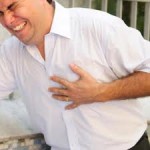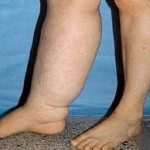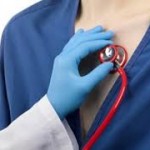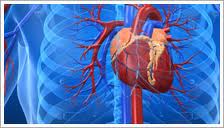Pulmonary hypertension is a kind of elevated blood pressure which has an effect only on the right side of the heart and the arteries in the lungs. Pulmonary hypertension starts when the capillaries and pulmonary arteries, small arteries in the lungs happen to be narrowed or in worst cases become destroyed. This will cause difficulty for the blood to flow all the way through the lungs that elevates the pressure inside the arteries of the lungs. The right ventricle or the lower right chamber of the heart should take more extra effort to pump blood all the way through the lungs when the pressure begins to construct. This will eventually cause the muscle of the heart to deteriorate until it fails absolutely. Pulmonary hypertension is considered as a severe disease that develops gradually into a worse condition and at times fatal. Pulmonary hypertension is incurable disease but there are available treatments that can help to reduce the symptoms and to have a get better life.
What are the types of pulmonary hypertension?
- The first type is the idiopathic pulmonary hypertension where the primary reason of the high blood pressure in the lungs is not known. Mostly of the people affected with idiopathic pulmonary hypertension, the real cause is unknown but some of the people with idiopathic pulmonary hypertension acquire it genetically.
- The second one is the secondary pulmonary hypertension. This is a more frequent type of pulmonary hypertension than the idiopathic one. This type of pulmonary hypertension occurs when there is an additional health problem.
What could be the causes of secondary pulmonary hypertension?
Unlike idiopathic pulmonary hypertension wherein the real cause is not being recognized, the secondary pulmonary hypertension has several causes and they are the following.
- There is a presence of blood clots in the lungs.
- The person affected experience a chronic obstructive pulmonary illness like emphysema.
- The person experiences a sleep apnea or other sleep disorders.
- The person affected experience a connective tissue disorders like lupus.
- Another reason of secondary pulmonary hypertension is the congenital heart disease.
- The person has cirrhosis, a chronic liver disease.
- AIDS can also be the cause of having secondary pulmonary hypertension.
- A person with pulmonary fibrosis, one of the lung illnesses that describes as having of the scars in the tissue between the air sacs of the lungs.
- A person with a left-sided heart failure.
- People living at the places with a high altitude of more than 2,438 meters or 8,000 feet.
- People who climb or hike at places with an altitude of higher than 2,438 meters or 8,000 feet without familiarizing first.
- People who make use of some stimulant drugs like cocaine.
What are the complications of pulmonary hypertension?
There could be various complications brought by pulmonary hypertension and they are the following.
- The first complication is the right-sided heart failure or cor pulmonale. In this case, the right ventricle of the heart develops inflammation and has to pump more than the normal way to carry the blood all the way through the contracted or blocked pulmonary arteries. Initially, the heart will make an effort to compensate by becoming its walls thickened and by making the chamber of the right ventricle mounted to enhance the quantity of the blood it can hold. But this will work only in a short period of time and in the long run the right ventricle of the heart will stop working from the added tension.
- The second complication is the clotting of the blood. Clot is very helpful from bleeding after a person is being injured. But occasionally, there are formations of clots that are not needed or required. There are a lot of small clots or sometimes a few large ones that displace from the veins and pass through to the lungs forming a pulmonary hypertension. The lungs of a person with pulmonary hypertension is more prone to have clots specifically in the small arteries which can be considered a dangerous condition especially if the blood vessels are already blocked.
- The third complication is arrhythmia. Arrhythmia is the irregular heartbeat of the heart that can cause fainting or dizziness, palpitations and can also lead to fatal.
- The fourth complication is bleeding. This complication is considered as another fatal because this can lead to the bleeding into the lungs and hemoptysis, coughing up of blood.
What are the signs and symptoms of pulmonary hypertension?
1.    Shortness of breath
 A person affected of pulmonary hypertension experience shortness of breath or dyspnea from the start of performing exercise and even at rest.
A person affected of pulmonary hypertension experience shortness of breath or dyspnea from the start of performing exercise and even at rest.
2.    Fatigue
 A person may experience tiredness or weakness even without exhaustion physical activities.
A person may experience tiredness or weakness even without exhaustion physical activities.
3.    Chest pain
 A person may feel pain or pressure in chest.
A person may feel pain or pressure in chest.
4.    Edema
 A person may experience swelling in the legs, ankles until it reaches the abdomen.
A person may experience swelling in the legs, ankles until it reaches the abdomen.
5.    Discoloration of lips and skin
 There is the presence of cyanosis, appearance of the bluish color of the skin and lips.
There is the presence of cyanosis, appearance of the bluish color of the skin and lips.
6.    Racing heartbeat
 There is the chasing of heart tremble.
There is the chasing of heart tremble.
7.    Dizziness
 A person may experience dizziness or fainting.
A person may experience dizziness or fainting.
In early stages of pulmonary hypertension, the signs and symptoms may not manifest however as it progresses the symptoms worsen. Do not hesitate to seek a medical help if you experiencing these signs and symptoms.
